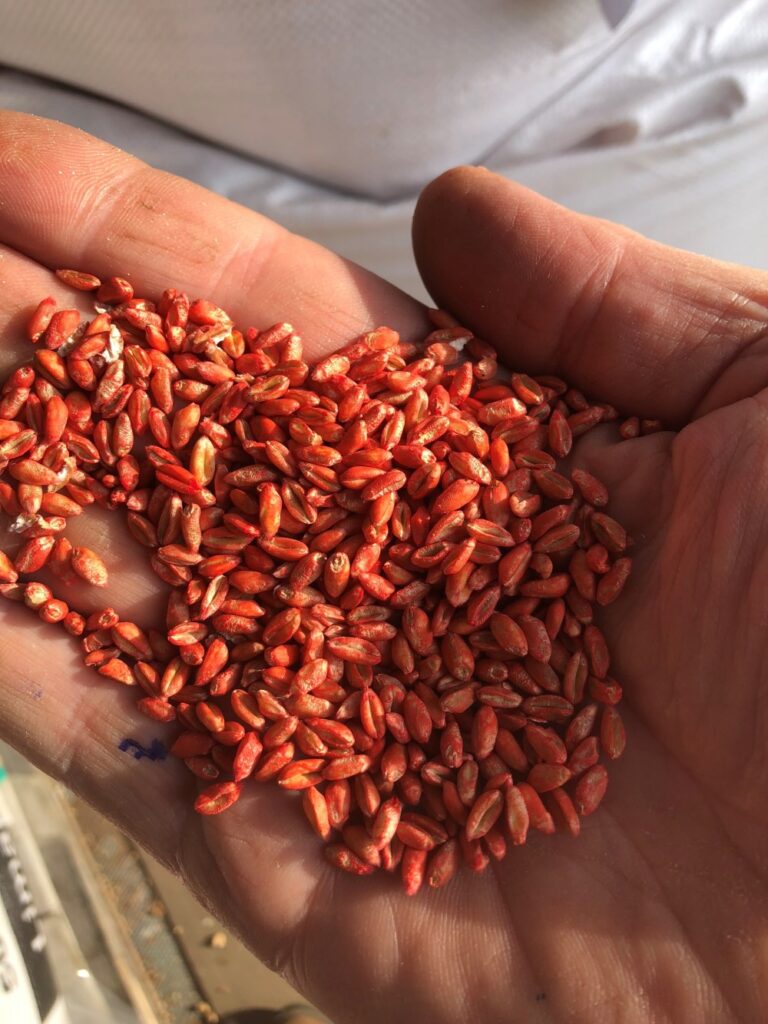Home-Saved Seed Considerations
23 August 2023Home-saving non-hybrid varieties can be a cost effective way of providing the seed stock you want to plant this autumn whilst at the same time easing cash flow. As a broad brush figure home saving cereal seed cost is approx. two thirds the cost of buying in, savings are considerably greater for rapeseed.
Planning ahead enables you to plant a relatively small acreage of more expensive varieties with the intention of multiplying up for planting over a big acreage the following year.
It's best to try end store the varieties for home saving separately on the grain store floor without running through the pit intake to avoid contamination with other seed and also avoid drying the grain where possible to protect the germination. Drying grain destined for seed typically should restrict air plenum temperature to 60 degrees such that grain temperature doesn’t exceed 47 degrees
To avoid the need for drying aim to harvest at or below 17% moisture for cereals and pulses or 10% or below for oilseed rape. Cutting between the tramlines to get the sample will avoid taking the less ripe grain typically found in the tram lines which will push up overall moisture content.
Avoid using pre harvest glyphosate on crops destined for seed and only save conventional varieties and not hybrids as this goes against current legislation.
Send samples for testing prior to dressing; germination should ideally be over 90% and tests will be available for diseases such as bunt, loose smut and seedling blight. For beans, test for Ascochyta and stem nematode and for conventional rape test for high erucic acid levels.
Gravity separators do a good job of screening out the low bushel weight seed typically retaining the boldest 70%. You can adjust the separator to split out less or more; the more selective the setting the higher the resultant TGW.
Putting the grain over a gravity separator will retain seeds with higher vigour, higher germination rate and high emergence percentage and consequently plants that will tiller more and have a greater root mass too.
Declarations have to be made to the British Society of plant breeders and royalties paid on a tonnage basis on protected varieties. All Farm-saved seed must be produced and saved on the standing and not sold on.
It's important to remember too that all blends, cover and volunteer crops, whole crops and bi-crops and indeed any failed crops could potentially contain a variety that requires them to make a declaration.
Mark Bowsher-Gibbs, SAC Consulting
Sign up to the FAS newsletter
Receive updates on news, events and publications from Scotland’s Farm Advisory Service


